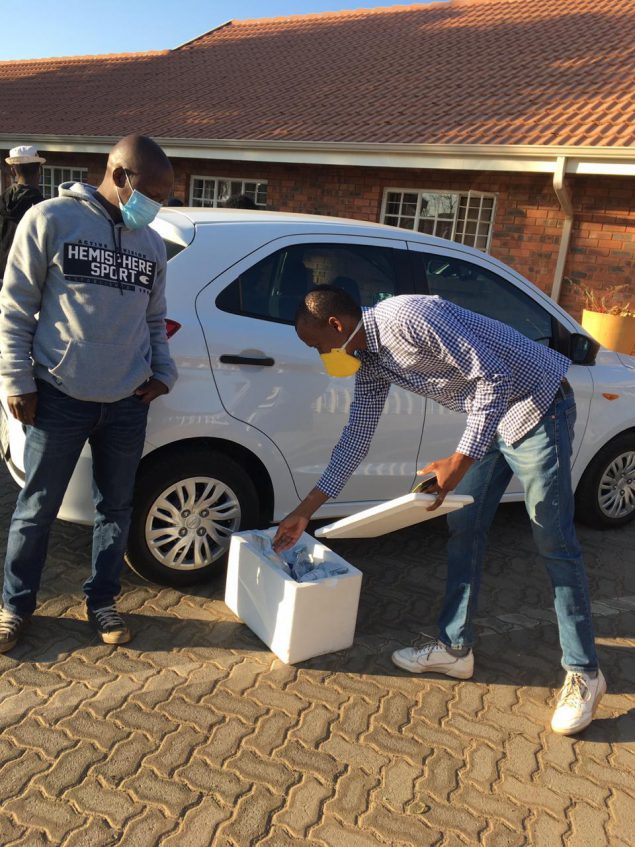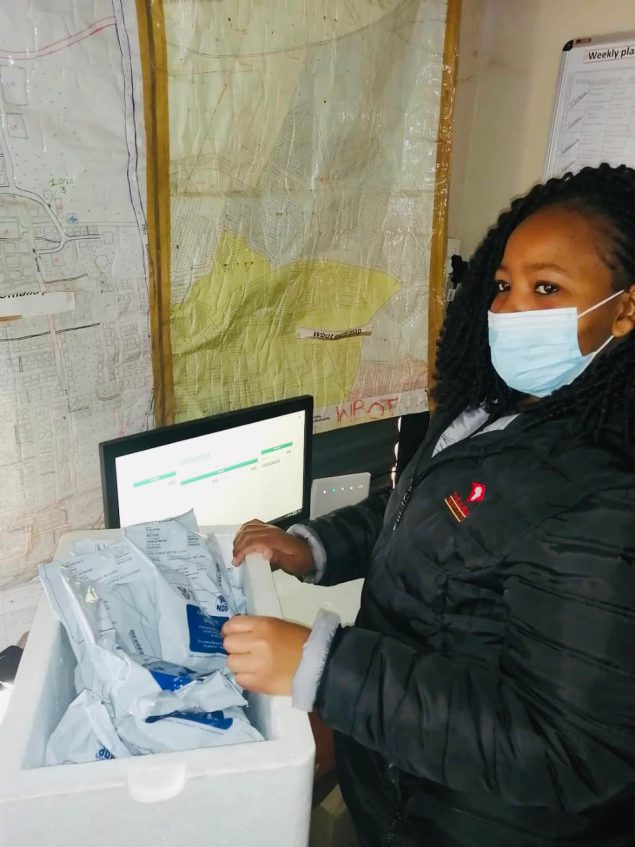Delivering Life Saving Medicine During the COVID-19 Pandemic Lockdown
Lifesaving treatment delivered to clients at home.
South Africa maintains the largest antiretroviral treatment (ART) program in the world, with more than 4.7 million people estimated to be on treatment. These millions of people living with HIV depend on the lifesaving ART to live healthy and long lives.
Since coronavirus disease 2019 (COVID-19) emerged in South Africa in March 2020, many cannot access treatment. The national lockdown has restricted movement and suspended some modes of public transport. In cases where public transport was available, such as e-hailing services, it was unaffordable for many who live below the breadline.
To address this challenge, the Aurum Institute, CDC South Africa’s implementing partner, introduced a home delivery project. Now clients can receive chronic medication, including ART, in the convenience of their homes.

It’s all about convenience and ensuring that clients don’t interrupt treatment. Photo: Aurum Institute

Packed and ready to be delivered to clients at home. Photo: Aurum Institute
Aurum’s Head of Pharmacies Niel van Rooyen says the aim was to reach as many patients as possible with home deliveries from high volume facilities. “The initial concern was to ensure that patients remain on treatment and the negative impact of Covid-19 is an additional motivation to deliver to the homes of patients.”
The home delivery project was introduced at the end of April and the first delivery took place on May 4, 2020. By July 10, 7,236 parcels of treatment had been delivered to clients who would have had to collect their treatment from 13 healthcare facilities. Aurum supports the facilities with TB and HIV treatment programs funded by the U.S. President’s Emergency Plan for AIDS Relief (PEPFAR) through CDC in the Ekurhuleni District, east of the Gauteng Province.
Explaining how the process works, Van Rooyen says: “The Aurum tracers identify possible home delivery clients and call them to offer home delivery. If the clients takes up the offer, they confirm if there will be someone at home to receive the delivery. Once the clients confirm, the tracers populate a home delivery manifest for the drivers before assembling the parcels and contacting the driver to confirm next day delivery.”
The following day, the Aurum driver collects the delivery manifest and parcels from the facility and delivers to the addresses given by the clients. If the driver could not find the address given by the client, he returns the parcel to the facility and the tracers follow up with the client on an alternative option for delivering the lifesaving treatment.
Van Rooyen says some clients may give incorrect address fearing stigma. HIV related stigma is still an issue in South Africa, albeit not as rife as it was a decade ago. Many local studies have shown that stigma remains one of the contributing factors to the poor retention of people living with HIV on treatment.
“What we found in cases where deliveries were returned [about 5%], was that patients were not comfortable with the medication delivered to their front door. This was mitigated by a “collect on the corner” approach where the Aurum drivers called the patient just before delivery and asked to meet with them at a convenient location close to their home,” he adds. This strategy worked. Clients always collected their treatment.
Due to the success of the Home Delivery Project in Ekurhuleni, the Aurum Institute is expanding the service to public healthcare facilities in three districts it supports in the North West Province – Bojanala District, Ngaka Modiri Molema District and the Dr. Kenneth Kaunda District. Additionally, it plans to increase the number of facilities that are doing home deliveries in Ekurhuleni by six next month.